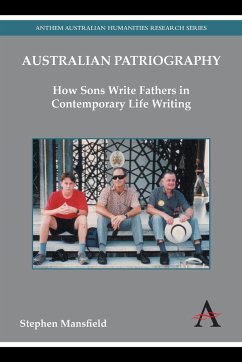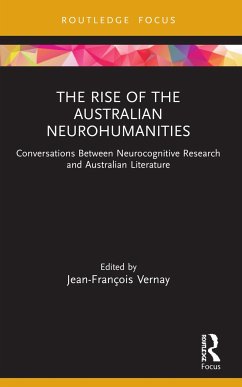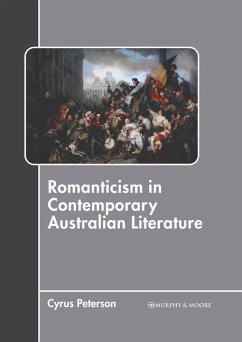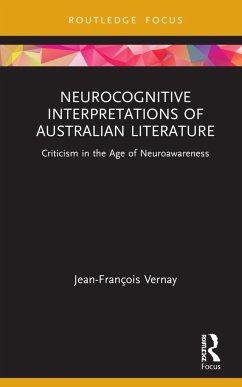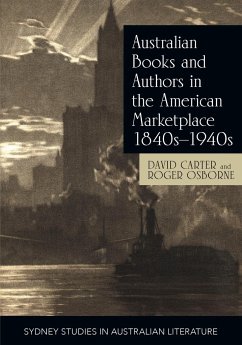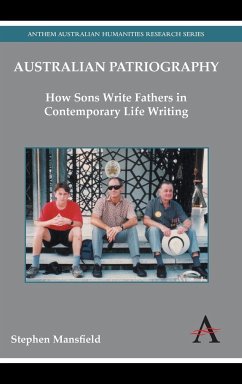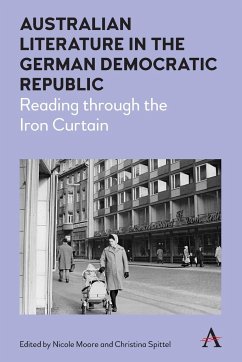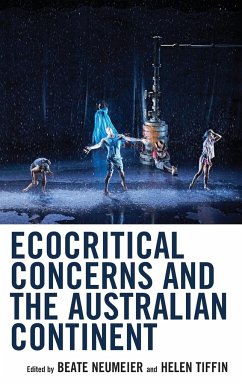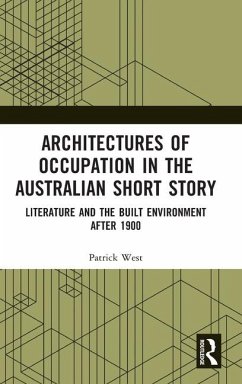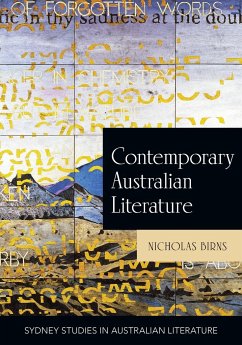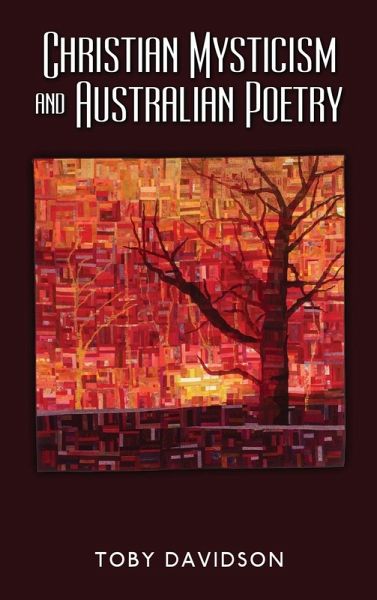
Christian Mysticism and Australian Poetry
Versandkostenfrei!
Versandfertig in 1-2 Wochen
90,99 €
inkl. MwSt.

PAYBACK Punkte
45 °P sammeln!
Australian poetry is popularly conceived as a tradition founded by the wry, secular and stoic strains of its late-nineteenth-century bush balladeers Adam Lindsay Gordon, Henry Lawson and 'Banjo' Paterson, consolidated into a land-based 'vigour' in publications such as the Bulletin. Yet this popular conception relies on not actually consulting the poetry itself, which for well over one hundred and fifty years has been cerebral, introspective, feminine and highly - even experimentally - religious. Western Christian mystics and Western Christian mystical poets of the classical world, Middle Ages ...
Australian poetry is popularly conceived as a tradition founded by the wry, secular and stoic strains of its late-nineteenth-century bush balladeers Adam Lindsay Gordon, Henry Lawson and 'Banjo' Paterson, consolidated into a land-based 'vigour' in publications such as the Bulletin. Yet this popular conception relies on not actually consulting the poetry itself, which for well over one hundred and fifty years has been cerebral, introspective, feminine and highly - even experimentally - religious. Western Christian mystics and Western Christian mystical poets of the classical world, Middle Ages and modern era have been sources of inspiration, influence and correspondence for Australian poets since the writings of Charles Harpur (1813-1868), but there have also been ongoing debates as to how mysticism might be defined, whom its true exemplars might be, and whether poets should be considered mystical authorities. This book dedicates whole chapters to five Australian Christian mystical poets: Ada Cambridge (1864-1926), John Shaw Neilson (1872-1943), Francis Webb (1925-1973), Judith Wright (1915-2000) and Kevin Hart (1954 - ), with additional contextual chapters on their contemporaries and new approaches by Aboriginal poets since the early 1990s. Scholars and students are increasingly disregarding the popular 'bush' facade and reading Australian poetry in terms of the sacred, the philosophical, the contemplative and the transcendent. At a national level this can be traced back to the post-war and 1970s generations of poets and readers who rejected the safe old bush myths for a more relentless interrogation of Australian origins, environments and metaphysics. Yet internationally, as among the general Australian public, the very idea of an Australian Christian mystical poetry seems incongruous with a metaphysically weak bush tradition which asks very little of them. This book casts Australian poetry in a new light by showing how Australian Christian mystical poetics can be found in every era of Australian letters, how literary hostilities towards women poets, eroticism and contemplation served to stifle a critical appreciation of mystical poetics until recent decades, and how in the twentieth century one Australian Christian mystical poet began to influence another and share their appreciations of Dante, Donne, Traherne, Blake, Wordsworth, Brontë, Rossetti, Hopkins, Yeats, Eliot and Lowell. Despite parallel international works on British, American and European Christian mystical poets, there has never been a book-length exploration of Australian Christian mystical poets or poetics. This study draws upon eight years of research to not only consider debates around Christian mysticism during the lives of its selected poets, but to also frame its argument in terms of the twenty-first-century Christian mysticism scholarship of Kevin Hart, Amy Hollywood, Ursula King and Bernard McGinn's seminal multi-volume history of Western Christian mysticism, The Presence of God. Simultaneously, Australian literary criticism of the relevant eras as well as in the present are explicitly engaged throughout. This book is a rigorous work of original scholarship which will significantly impact future discussions on the possibilities of Australian literature.





